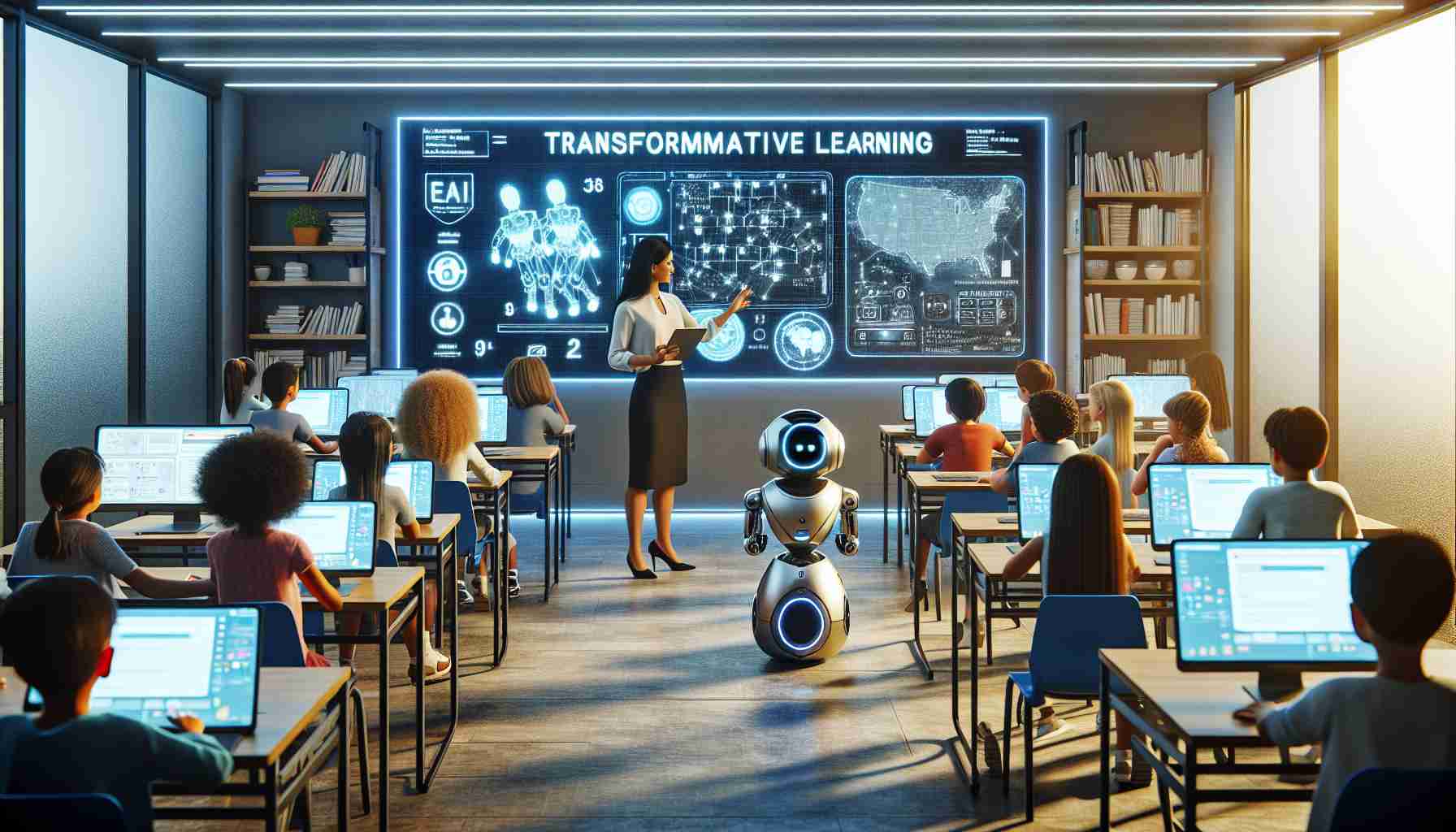In a rapidly evolving world, it is crucial for education to keep up with the pace of technological advancements. Artificial Intelligence (AI) is one such technology that has the potential to revolutionize classrooms and transform the way students learn. By integrating AI into education, educators aim to prepare students for the future and equip them with the necessary skills to thrive in a world driven by technology.
The St. Vrain Valley School District in Colorado is at the forefront of this movement. Recognized for its commitment to technology and innovation, the district has been exploring the use of AI in classrooms. Students in the district are engaged in projects that require them to tackle real-world challenges using AI. From teaching a camera to recognize pedestrians and stop signs in self-driving cars to developing gaming technology for language learning, students are gaining practical experience with AI.
The integration of AI in education is not just about using technology for the sake of it. It is about leveraging AI as a tool to enhance the learning experience and prepare students for the future workforce. AI can assist teachers in tasks such as lesson planning and personalized instruction, allowing them to focus more on individual students’ needs. Students, on the other hand, can benefit from AI-powered platforms that enable personalized learning and provide seamless access to educational resources.
However, introducing AI in a way that promotes academic success and critical thinking requires a gradual approach. Experts and educators emphasize the importance of guiding students to develop essential skills that AI cannot replicate, such as collaboration and empathy. As AI becomes increasingly integrated into our daily lives, it is crucial for students to understand the societal, ethical, and emotional impacts of AI technologies.
To support schools in navigating these complexities, organizations like The AI Education Project are working with educators to develop a comprehensive plan for integrating AI responsibly. By providing teachers with a foundational understanding of AI, schools can ensure that AI is used in a way that enhances the learning experience rather than offering shortcuts.
Education is evolving, and AI is poised to play a significant role in shaping the future of learning. As schools embrace AI, it is essential to prioritize skills that differentiate humans from machines, fostering creativity, critical thinking, and adaptability. By preparing students for a future where AI is commonplace, educators can equip them with the tools they need to succeed in the digital age. The St. Vrain Valley School District’s commitment to training all educators in generative AI reflects their dedication to empowering students for the world they will enter.
Frequently Asked Questions (FAQs) about AI in Education:
1. What is the potential impact of AI on education?
AI has the potential to revolutionize classrooms and transform the way students learn. By integrating AI into education, educators aim to prepare students for the future and equip them with the necessary skills to thrive in a world driven by technology.
2. How is the St. Vrain Valley School District using AI in classrooms?
The St. Vrain Valley School District in Colorado is at the forefront of integrating AI in classrooms. Students are engaged in projects that require them to tackle real-world challenges using AI, such as teaching a camera to recognize pedestrians in self-driving cars or developing gaming technology for language learning.
3. How can AI enhance the learning experience?
AI can assist teachers in tasks like lesson planning and personalized instruction, allowing them to focus more on individual students’ needs. Students can also benefit from AI-powered platforms that enable personalized learning and provide seamless access to educational resources.
4. What skills should students develop alongside AI integration?
Experts and educators emphasize the importance of guiding students to develop skills that AI cannot replicate, such as collaboration and empathy. It is crucial for students to understand the societal, ethical, and emotional impacts of AI technologies.
5. How can schools navigate the complexities of integrating AI responsibly?
Organizations like The AI Education Project are working with educators to develop a comprehensive plan for integrating AI responsibly. By providing teachers with a foundational understanding of AI, schools can ensure that AI is used in a way that enhances the learning experience rather than offering shortcuts.
6. What skills should educators prioritize in the age of AI?
As AI becomes more prevalent, it is essential to prioritize skills that differentiate humans from machines. Educators should foster creativity, critical thinking, and adaptability to prepare students for a future where AI is commonplace.
7. How does the St. Vrain Valley School District train educators in generative AI?
The St. Vrain Valley School District is committed to training all educators in generative AI, reflecting their dedication to empowering students for the future. Further details on their training program can be found on their website: St. Vrain Valley School District Website.
For more information on AI in education, you can explore the following related links:
– What is AI? Will It Replace Teachers? What About Students?
– How AI is Set to Transform Education
– AI in Education: A Guide for Educators
The source of the article is from the blog elblog.pl

